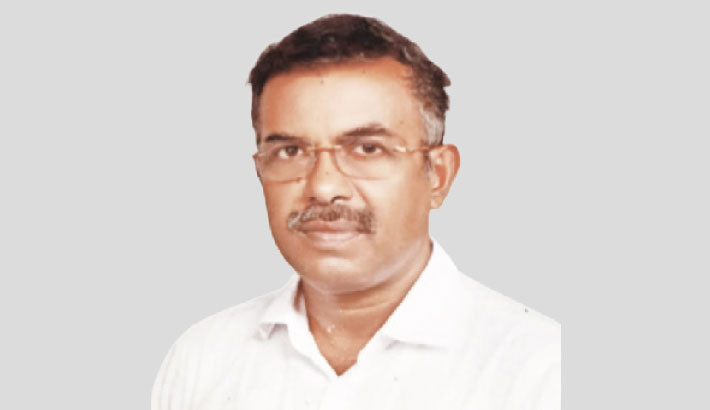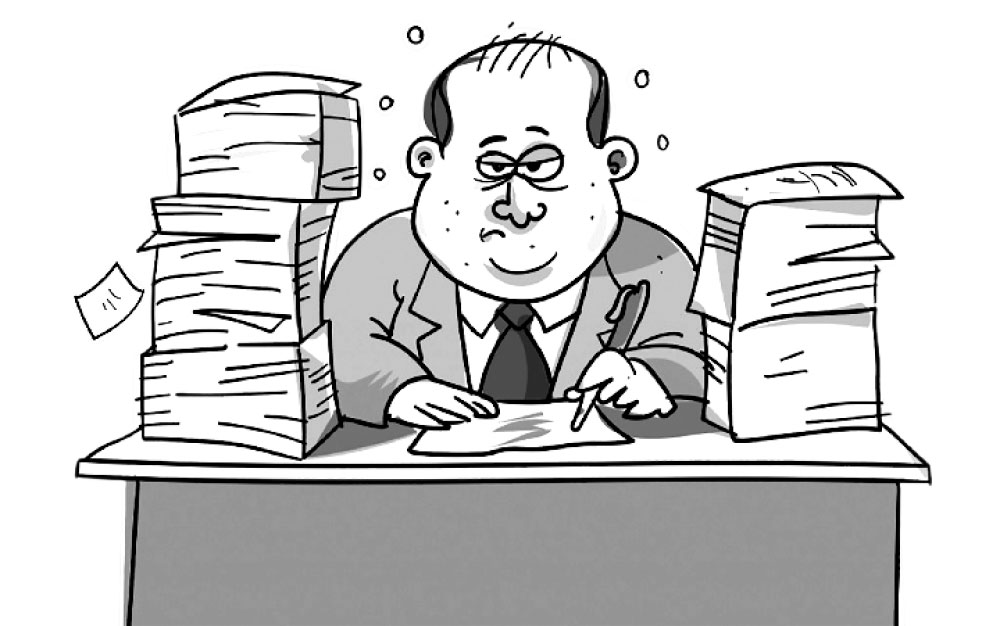
Babor Ali Mir
Democracy is now regarded as the best form of governance worldwide among all other governance systems because it protects people’s rights and freedom. However, in a third world democratic country, bureaucracy often appears as a big hurdle against enforcement of people’s fundamental rights.
Government officials enjoy the leeway of work within their own periphery. Specific rules and regulations constrain the activities of the bureaucrats so that justice can be ensured. From recruitments to retirements, civil servants have to follow some dos and don’ts in their official as well as personal lives.

But in the case of elected political representatives, hardly there lays any hard and fast rule to be followed. Corruption pervades when any or both of them perform their duties by flouting the code of conduct specified for them. Bureaucrats and elected public representatives are complementary to each other and mutually dependent for discharging their public functions.
It cannot be flatly said that all political leaders are highly educated, and not all civil servants have excellent academic backgrounds. Political leaders should monitor and guide bureaucrats towards better performance of their works and take decisions of adopting and implementing development projects and inter-state relationships. If they make any mistake in adopting right policies at right time, the nation has to suffer. When both of them are efficient, it benefits the state.
But a lack of harmony and trust between them may lead to chaos and confusion in performance of a ministry or field level office. If any of the two persons lack managerial, administrative or leadership quality and the other outweighs him, imbalance occurs. If the more qualified person holds political clout and becomes dishonest he may mislead the government. When both are equally qualified but can trust each other, a silent psychological battle continues between them and the works of the office or ministry get hampered.
Civil servants’ limitation lies to some extent in the fact that they have to always do thankless tasks and work behind the scenes. People often talk about the power and functions of CSP officers, and there is hearsay that they were very strong in sticking to some principles and would serve people better than now.
It is partially true that they could exercise more power because they were few in number, common people were not so conscious about their rights and politicians were not so corrupted at that time. At present, civil servants have lost their credibility to people. Political leaders support and protect any civil servant till he can serve their purpose whether legal or illegal. Sometimes junior officers may reject unlawful proposals but senior officers lack the gut to stand by them. Government officials often fail to do justice due to their silent support for a political party. To discharge duty honestly seems costly as one has to face frequent transfers and other troubles. The saying goes in civil service, “Do not make anybody your enemy.” But it is impossible, as every decision pleases one and displeases another.
So, to stay safe, one prefers to remain in the good book of political representatives. As a result of this partisan role, he has to remain subservient to the political leader.
Who among the civil servants will risk punishment postings and promotion deprivation by maintaining neutrality? A civil servant can manage good posting and promotion if he adopts unfair means and keeps liaison with powerful political and administrative bosses. Hence, most of them begin competition by pursuing shelter of political leaders, which prevents them from coming out of the cycle of corruption. The allurement of illegal wealth and apprehension of bad posting or deprivation of promotion dampen their spirit.
To come out of this situation, at least three measures may be introduced. First, a strong code of conduct and sufficient training should be given to elected public representatives so that they do not make illegal intervention in officials’ works. Second, the Ministry of Public Administration should not be influenced by political recommendation unless a complaint is proved by internal investigation and should not entertain D.O. letters during promotion and posting. Third, a unified standard operating procedure should be fixed for promotion and posting ensuring equal opportunity for all officials.
To ensure better and simplified service to people, vast reform should be introduced in civil service. The culture of managing good posting and promotion by blandishment and oiling must be stopped. We should follow the footsteps of the Singaporean bureaucracy whose promotion pattern is firmly based on meritocracy, ethics and morality. Institutional development is required so that every government organisation can withstand undue interference of political representatives. When institutions are developed corruption will automatically vanish. Civil servants are merely cogs in the wheel. When political bosses take firm stance against corruption, government officials will be bound to rectify themselves, and that can be ensured by strictly following the principle of just rewards for good deeds and nemesis for bad deeds.
___________________________________________
The writer is a Joint Secretary, Ministry of
Housing and Public Works. He can be reached
at [email protected]

